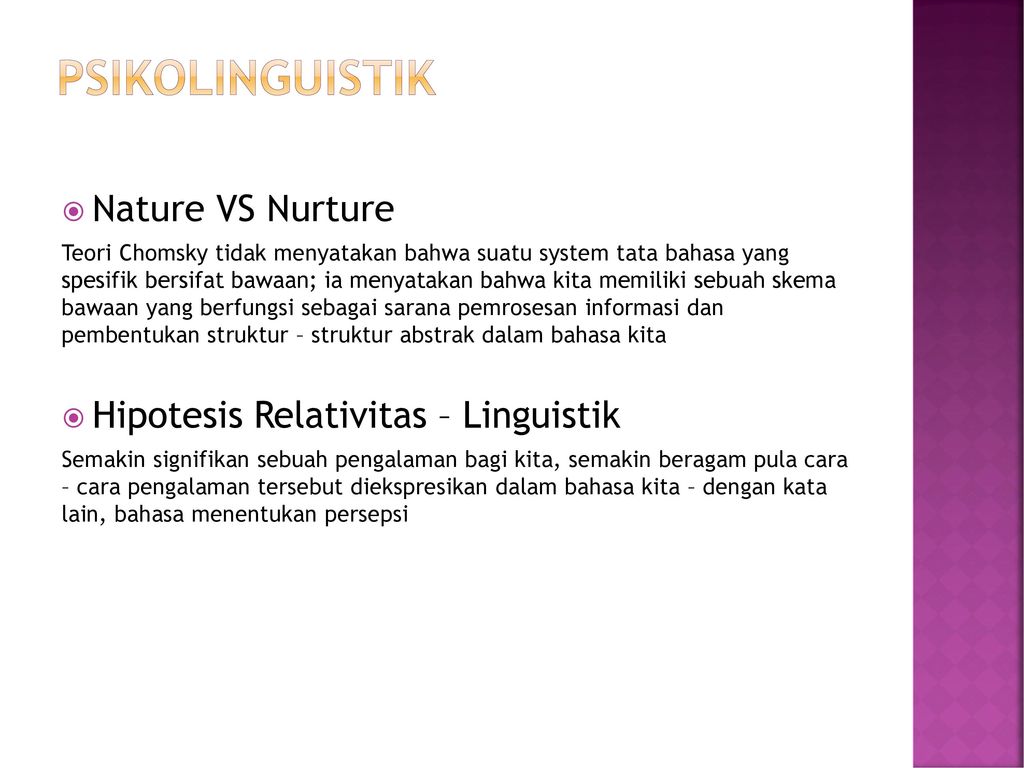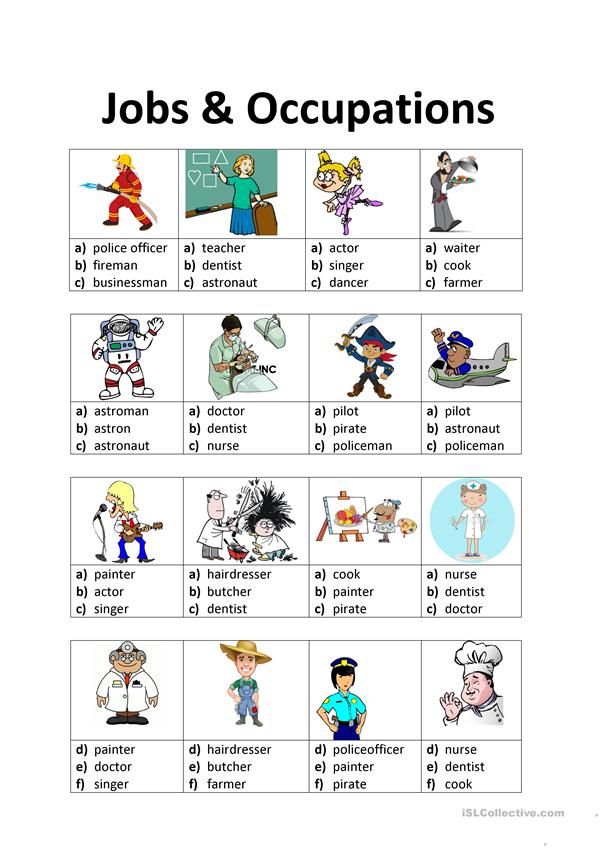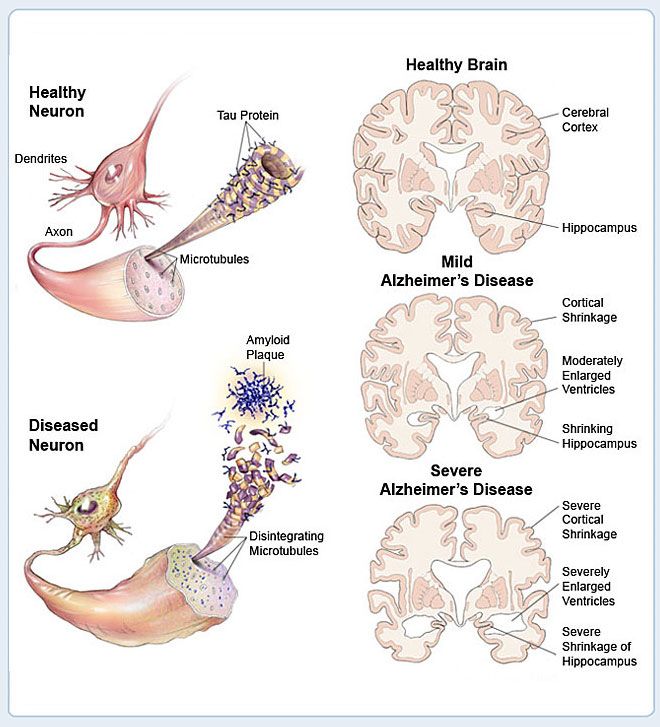My mom worked way too hard
IAMA son of a mother that works way too hard. : IAmA
Just a little bit of a forewarning, this may be kind of long, and will probably come across as a sob story. I don't know if IAMA was the most appropriate place to post this, but I don't think you guys will mind. I don't know.
Basically it goes like this. My mom is pushing 49 and has a condition known as hemochromatosis, which is a rare blood disorder that makes it difficult to process iron properly and it builds up. The side affects include arthritis (which my mom has), and pancreatic cancer (which my grandma died from at 49). The treatment for which is basically bloodletting, where they just bleed you out to get rid of the excess iron. Unfortunately this has induced fatigue, anemia, and Immunodeficiency in my mom, who will get sick for weeks, some times months at a time.
Now about my mom's job. For about 25+ years, my mom has worked as a Radiation Protection Technician for various power companies. Basically, power plants throughout the country will have "outages" where they hire a bunch of temporary contract workers to do repairs or replacements on various components necessary in the plant. What that entails is, oftentimes, 12-14 hours shifts, 7 days a week, a month at a time, climbing around in environments that are radioactive, filled with hazardous chemicals, scaling scaffolding and pipes sometimes a 100+ feet tall, in scrubs and plastic suits in temperatures that easily go over 100 degrees at a time. Only recently has she joined the pipefitter local and decided to do the pipefitter side of nuclear power contract work, only because the marriage to my stepdad was becoming so strained that they needed to be able to do jobs together (He was away working in Mexico for nearly 6 months at those hours). Mom enjoys the work because basically our entire family does it, and it allows her to work 4-5 months out of the year, and the rest of the time/summers she has off to take care of our family and the house. Of course the time that my mom has "off", if she isn't busy ferrying kids, she's working all day every day to finish: remodeling the kitchen, remodeling the bathroom, making my brother's bedroom, landscaping our multi-acre property (which takes hours to mow, even on a rider), repairing the barn/machine shed, clearing the woods on the back of our property, refencing our yard, etc.

In mention of my stepfather I guess I'll move onto some of our financial trouble. Financially our family should be a lot more well of than it is, seeing as how our household income is >100k. Unfortunately that's not the case. The divorce between my mom and my dad happened roughly 7 years ago, which originally ended in joint custody. Both parents wanted full custody. My mom wanted full custody because... well she's my mom. My dad wanted full custody because he was so insulted by mom leaving him and finding someone (much) better for her that he knew the best way to devastate her would be to take her kids away. So he proceeded to launch custody battles for probably 5 years, inbetween trying to sue her into bankruptcy. (during final proceedings he made it so mom was unable to work as a Radiation protection technician, and she was left to work at Kohl's and Lowes for a couple years making $12 an hour. Finally she had had enough and just went back to her old job whether it was considered consistent employment or not). The whole ordeal cost us in the order of 10's of thousands of dollars in lawyers and court costs. Just pissed away. And they upheld the joint custody ruling. And then for the last two years mom and my stepdad have been audited for taxes, which I think cost us $20-30,000. Also, my stepdad's ex wife has full custody of his kids, so he pays roughly $1,400 a month in child support. Between that and our mortgage, car payments, and my college, we're basically broke.
The whole ordeal cost us in the order of 10's of thousands of dollars in lawyers and court costs. Just pissed away. And they upheld the joint custody ruling. And then for the last two years mom and my stepdad have been audited for taxes, which I think cost us $20-30,000. Also, my stepdad's ex wife has full custody of his kids, so he pays roughly $1,400 a month in child support. Between that and our mortgage, car payments, and my college, we're basically broke.
And the whole ordeal has just got me to tears. I am well aware of how hard my mom works for her money, and to be honest it's killing her, and then I have to go and require thousands of dollars a year for my education... I feel like I'm killing my mom. And so I'd like to alleviate the situation... Make it so my mom can retire... or at least not have to work so hard anymore. But I mean, I'm 19 years old. What am I going to do? Quit school and work full time? And I've looked into everything, including sending my sob story to various talk show hosts, in hopes that one of those fat millionaires will throw a few thousand our way (no luck). And it's got me so depressed that I don't even want to do my school work (in a good semester I get maybe a 2.5), which just feeds my depression and I do worse. And my relationship with my boyfriend isn't helping. There's just so much that my mom has done for me that I could go on about it for a long time and I feel like I'm pissing my time away killing her indirectly. So I don't know anymore. Just posting for kicks to see what Reddit says, so AMA.
And it's got me so depressed that I don't even want to do my school work (in a good semester I get maybe a 2.5), which just feeds my depression and I do worse. And my relationship with my boyfriend isn't helping. There's just so much that my mom has done for me that I could go on about it for a long time and I feel like I'm pissing my time away killing her indirectly. So I don't know anymore. Just posting for kicks to see what Reddit says, so AMA.
Here's a recent family photo if it helps.
tl;dr my sick dying mom works 12 hours a day 7 days a week 4-5 months out of the year in radioactive environments on top of being a full time mom and renovating our house/property. And my helplessness makes me sad.
My mom once told me it was hard to love me. I’ve never been the same since that school morning breakfast. : TrueOffMyChest
Looks like you're using new Reddit on an old browser. The site may not work properly if you don't update your browser ! If you do not update your browser, we suggest you visit old reddit .
Press J to jump to the feed. Press question mark to learn the rest of the keyboard shortcuts
Search all of RedditFound the internet!
Feeds
Popular
Topics
ValheimGenshin ImpactMinecraftPokimaneHalo InfiniteCall of Duty: WarzonePath of ExileHollow Knight: SilksongEscape from TarkovWatch Dogs: Legion
NFLNBAMegan AndersonAtlanta HawksLos Angeles LakersBoston CelticsArsenal F.C.Philadelphia 76ersPremier LeagueUFC
GameStopModernaPfizerJohnson & JohnsonAstraZenecaWalgreensBest BuyNovavaxSpaceXTesla
CardanoDogecoinAlgorandBitcoinLitecoinBasic Attention TokenBitcoin Cash
The Real Housewives of AtlantaThe BachelorSister Wives90 Day FianceWife SwapThe Amazing Race AustraliaMarried at First SightThe Real Housewives of DallasMy 600-lb LifeLast Week Tonight with John Oliver
Kim KardashianDoja CatIggy AzaleaAnya Taylor-JoyJamie Lee CurtisNatalie PortmanHenry CavillMillie Bobby BrownTom HiddlestonKeanu Reeves
Animals and PetsAnimeArtCars and Motor VehiclesCrafts and DIYCulture, Race, and EthnicityEthics and PhilosophyFashionFood and DrinkHistoryHobbiesLawLearning and EducationMilitaryMoviesMusicPlacePodcasts and StreamersPoliticsProgrammingReading, Writing, and LiteratureReligion and SpiritualityScienceTabletop GamesTechnologyTravel
Create an account to follow your favorite communities and start taking part in conversations.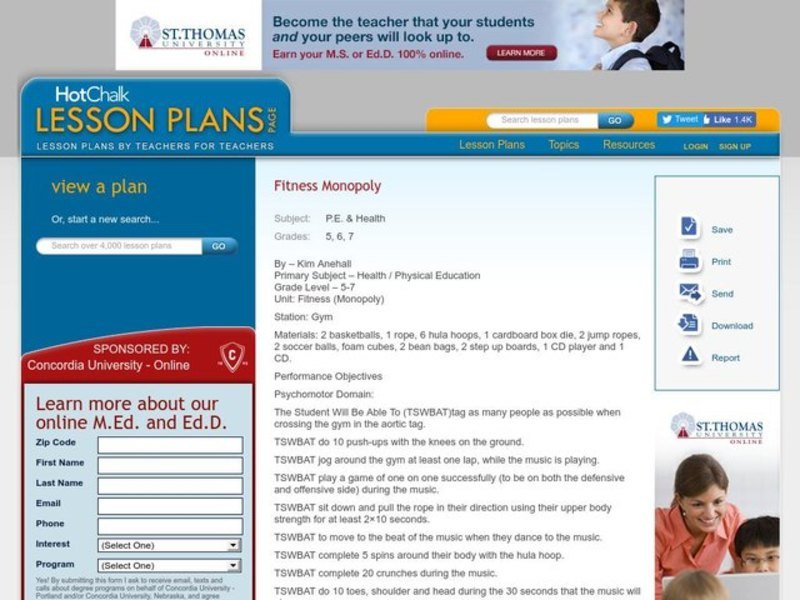
TrueOffMyChest
r/TrueOffMyChest
This thread is archived
New comments cannot be posted and votes cannot be cast
About Community
r/TrueOffMyChest
A place to get personal things off your chest. Not for opinions, not for relationship advice, and not for preaching.
Created Oct 21, 2013
Similar to this post
r/swordartonline
If Asuna maxed out
98%
44
10/16/2014
r/adhd_anxiety
My mother (whom I’m no contact with) always bragged about...
95%
18
Nov 5
r/TrueOffMyChest
My mom said I wasn’t a real man, and I’ve been giving her...
50%
1
Nov 4
r/GenX
My mom and I ate these a lot when I was young. They are...
78%
6
Nov 23
r/nosleep
My grandma used to tell me scary stories when I was.
 ..
..98%
301
2/5/2020
r/reddeadredemption
My mom got me a Cameo from Rob for my birthday a few...
98%
35
Nov 17
r/TrueOffMyChest
I told my mom how jealous I am of my half-siblings and...
98%
3.2k
3d
r/TrueOffMyChest
Me and my girlfriend were robbed and how she acted during...
97%
1.6k
1d
r/TrueOffMyChest
My girlfriend gave my best friend a BJ
97%
1.7k
5d
r/TrueOffMyChest
My date just told me that I was worth every penny after...
94%
2.0k
6d
r/TrueOffMyChest
My rapist sent me an apology. I’m considering taking...
97%
702
5d
r/TrueOffMyChest
Today, after 3 years, the crow I feed talked to me.

100%
369
5d
r/TrueOffMyChestnsfw
I’m not keeping the “miracle baby”
93%
692
5d
r/TrueOffMyChest
I'm getting divorced. I don't want to "act my age," I...
95%
1.4k
4d
r/TrueOffMyChest
I found out my r*pist died today
98%
419
1d
Reddit and its partners use cookies and similar technologies to provide you with a better experience.By accepting all cookies, you agree to our use of cookies to deliver and maintain our services and site, improve the quality of Reddit, personalize Reddit content and advertising, and measure the effectiveness of advertising.By rejecting non-essential cookies, Reddit may still use certain cookies to ensure the proper functionality of our platform.For more information, please see our Cookie Notice and our Privacy Policy .
Advertisement
Stories of people who stopped communicating with their parents | NGS
American psychotherapist Susan Forward's book "Toxic Parents" was written back in 1989
Photo: Olga Burlakova / NGS
Share
"Toxic parents" is a phrase that has literally burst into our lives. If earlier it was called the problem of fathers and children, which everyone seems to have, now the issue has reached a new level - the Internet is full of articles and books that describe "toxic relationships", "parental abuse" and the results of the presence of all this in our life. To some, the problem seems almost fictional - they say that children are now growing up so infantile, selfish and ungrateful. For others, such relationships with relatives have become a real tragedy. Three stories of people who decided to stop communicating with their parents - in the material of the NHS.
“For the first time in my life I began to live without fear and realized that it is possible to be happy. Her friends called me and said: "Shame on you, it's mom, you're just ungrateful."
My mother was born in the 50s, she is a very educated woman. She was raised by aunts and grandmothers who lost their children in the war. They believed that since the war had ruined their lives, so at least the child would live.
She was raised by aunts and grandmothers who lost their children in the war. They believed that since the war had ruined their lives, so at least the child would live.
I'm not at all worried that she beat me as a child, it's easy to forgive. But she beat her parents - I can't forget that. Dad ran away. Alimony paid, although my mother said that they were not. He tried to communicate with me, but my mother prevented this, then he stopped trying. In our society, the system of protecting women from a psychopathic man, although weak, is somehow swaying. But in relation to women - in any way, a man has practically no chance of taking a child. So I stayed with my mom.
As a child, I bit, cut, beat myself, just not to feel terrible mental pain. Now I know that there is such a thing - "self-harm" (self-harm). Someone presses acne, from which pockmarks appear, someone burns themselves. For example, I hit my head against the wall, I remember it from the age of 4.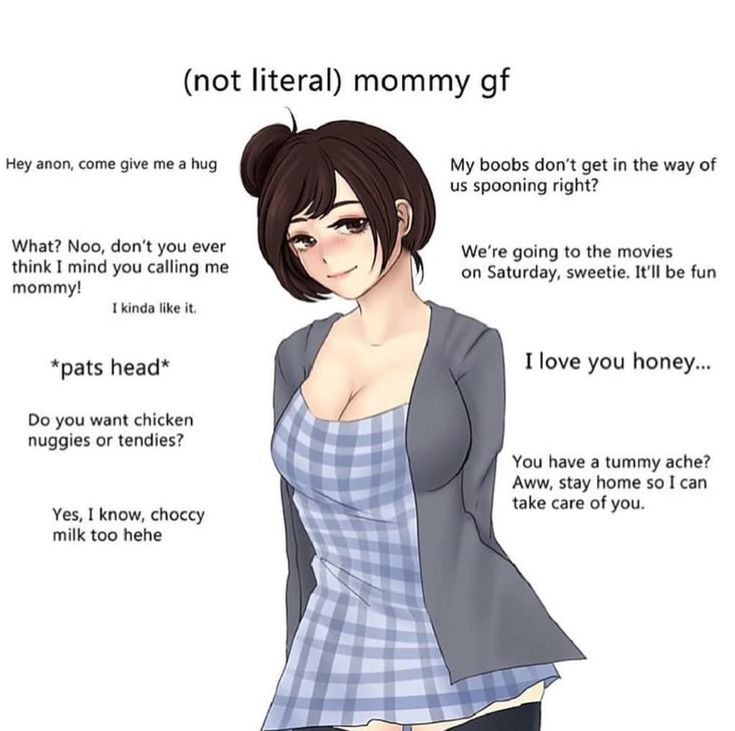 After all, if my mother hates dogs, I will also hate dogs.
After all, if my mother hates dogs, I will also hate dogs.
Those who did not know my mother very well considered her to be a super-intelligent, well-mannered woman. I really wanted to talk to this kind, smart version of her. But I got something else. I was almost always bad: crazy, idiot, a bag of shit (these words were commonplace). It seems to me that she came up with some kind of ideal for herself. When very rarely I corresponded to him, she even praised me. But basically I was different from him - they didn’t even take me for a four.
She was extremely aggressive about my getting married. She did not like my husband, she told me how best to communicate with him, namely to build and manipulate. In addition, I became, in her opinion, a slut, once I became pregnant. I live in Novosibirsk, she is in another city. But she constantly called, often came for several days. She told me: "Oh, look, what love. Anyway, he will leave you, you will crawl on your knees. "
"
When my husband was a sweetie and a cutie , and as soon as he left for work, she set all the dogs on me. When I suffered from toxicosis, she brought herring with her and began to cook it right in the pan with her head. I vomited from the smell, and she drove me into a corner and began to forcibly open my mouth and shove herring eyes into my mouth.
During the 9 months of pregnancy, I withstood such a pressure of anger and insults from her that I started to go crazy for childbirth. Then I did not think to stop communicating with her, because I had this thought: she is a mother, and mother is sacred.
I still wanted to build a good relationship with her. I had such an illusion - this is my mother. Maybe she will understand me, she will see that we have a good family and, perhaps, will be a good, beloved grandmother. I dreamed. She baked bread when she came. I wanted to please her, so to speak, to reset the relationship.
My boy was born with severe defects. The child has severe autism, among other diseases. Mother continued to insult not only me, but also the baby. She said that this freak would ruin my life and I had to get rid of him. She said: "Send it to the orphanage, give it to the mother-in-law, if this fool needs a freak."
The child has severe autism, among other diseases. Mother continued to insult not only me, but also the baby. She said that this freak would ruin my life and I had to get rid of him. She said: "Send it to the orphanage, give it to the mother-in-law, if this fool needs a freak."
One of the advices of psychotherapists, specialists in parental abuse, is to completely stop communicating with parents for at least a year and a half similar. Before, I rarely quarreled with her, because I was always afraid to the point of horror. But this time she raised her voice. She told me to leave me alone and not touch my son, reminded her that during pregnancy there was not a single calm day. She was in shock and therefore began to offend more. Then she threatened that since I dare to blather against her, she will not communicate with me until I ask for forgiveness. But at that moment I realized that I need to protect my family, so goodbye.
I remember her words: "You will understand how to live without a mother. " Well, I understood how. Breathing became easy. I am 36 years old, and only recently I was released. I began to work with a psychologist, I realized that I was not such a terrible nonentity as I was told.
" Well, I understood how. Breathing became easy. I am 36 years old, and only recently I was released. I began to work with a psychologist, I realized that I was not such a terrible nonentity as I was told.
The decision to stop communication was a conscious one, there was simply no strength left. She didn't call me either, because she was proud. Then somehow she found my phone, but I asked my husband not to pick up the phone. She sent friends who shamed me, said that I was an ungrateful daughter, and almost demanded to apologize.
We haven't spoken in 6 years. There is no desire to renew the relationship. The first thing that changed immediately was my child's condition improved dramatically, literally in a month. He began to notice things around him. And my tantrums stopped because there were no calls from her. I linked it all. Previously, the child had a very nervous mother, who was severely scolded on the phone and was nervous all day. And here mom is not scolded, she smiles.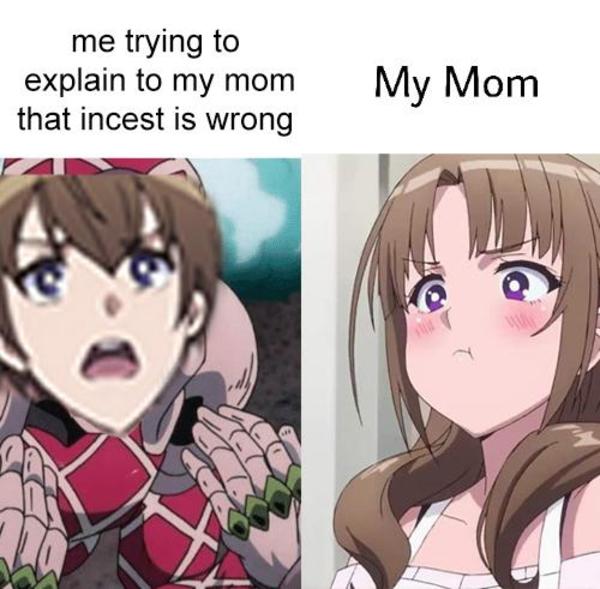 I feel many times better.
I feel many times better.
Although, I confess, even now I sometimes think: I wish I could share with my mother, she would like it, then. But I understand that if I return to this person, then everything will start again. She said so often that she was unlucky with her daughter. What does "bad luck" mean? As a mother of a disabled child, it seems to me that when a healthy child was born to you, this is happiness that blows the roof off, what else is needed?
I don't have resentment, but rather pain. The pain that this was in my family, it happened to me, with my childhood, in my life.
Abuse is violence in any form (psychological and physical) with the aim of subordinating and suppressing the will of a person
Photo: Alexander Oshchepkov / NGS
Share
Ivan, 26 years old, tries to minimize communication with his parents:
“About 6-7 years ago I left my hometown.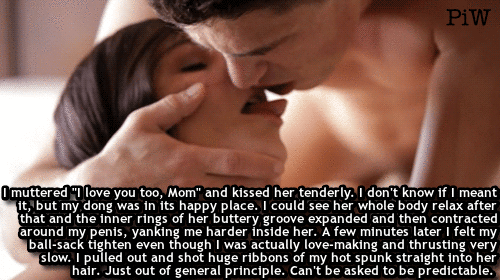 In the early years, I somehow tried to improve relations, or rather somehow involve my parents in my life. Then I realized that we have a completely different understanding of many things. Parents sometimes try to lead me to some sincere conversations, but when I start to tell them something, I really sincerely talk to them and discuss those things that bother me, including in our relationship with them, I feel that they do not understand me - and mutual reproaches begin. All these attempts at some kind of sincere communication still end up in a formal style of communication. Now I am trying to bring relations closer to zero, to make them neutral - like between people who have their own lives.
In the early years, I somehow tried to improve relations, or rather somehow involve my parents in my life. Then I realized that we have a completely different understanding of many things. Parents sometimes try to lead me to some sincere conversations, but when I start to tell them something, I really sincerely talk to them and discuss those things that bother me, including in our relationship with them, I feel that they do not understand me - and mutual reproaches begin. All these attempts at some kind of sincere communication still end up in a formal style of communication. Now I am trying to bring relations closer to zero, to make them neutral - like between people who have their own lives.
It's been building up for a long time. From childhood they taught me to be independent. I was an ordinary child, I was engaged in circles. They weren't particularly interested, and I didn't really let them into my life. I didn’t need support, I always came home on time, I could always cook something for myself and I didn’t have to constantly beg from my parents, so to speak. And if some clothes were needed, for example, they saw for themselves, because I was in front of them.
And if some clothes were needed, for example, they saw for themselves, because I was in front of them.
When I left, I felt that I had disappeared from their apartment, disappeared from line of sight. And their interest in me also disappeared. My parents had the opportunity to help me, because in principle they allowed themselves to spend money on some things that were not essential, so to speak. They could have fun, plan a vacation abroad, and at this time I needed tenths of the funds that they spend. I was dependent, I did not have the opportunity to provide for myself during my studies. I stopped feeling this support, stopped feeling that my parents somehow remember me, think about me.
They only sent money on request. This amount was only enough for a short period of time - a week or two. For food, basic household needs. I had to borrow, think of ways to get through this moment somehow. Winter has literally come, I don’t have winter shoes, I call my parents, but this was not part of their plans.
I told my parents about my life, problems with peers, and so on. But I didn’t see any interest from my parents, I didn’t hear any questions about what and how.
When I graduated from the university, I found a job, and in principle everything was in order, I even figured out housing. And in one of the conversations with my mother (she called me, congratulated me on my housewarming), she asked how to help me. I said I need a washing machine. She said: “Good,” but then she disappeared and there was no further news from her. For the next couple of months, she did not communicate with me, did not get in touch.
It's not about money, it's about attitude, attention. At first they created such a situation that I could not rely on them, count on them, were not interested, did not try to share my difficulties, to support me. And then they began to be offended that we didn’t have such a warm relationship, that I had my own thoughts and we didn’t communicate much. They think I just need to grow up. They attribute this to some kind of childishness, to the fact that I have not grown up yet and behave like a teenager.
They think I just need to grow up. They attribute this to some kind of childishness, to the fact that I have not grown up yet and behave like a teenager.
In my opinion, the only way to maintain communication is for me to find a psychotherapist, for my parents to find a psychotherapist, to work through this situation, to study it thoroughly. I don't see a way out of this situation on my own. For my part, I do not feel the need for any warmth. I have my own circle of people, I have my own family that will always support me, I am sure of it.
But at the same time, I understand that sooner or later the time will come when we will have to contact somehow. I love my parents, I think that my parents also love me in a certain way. But here they are hindered, it seems to me, by the problem of how they were brought up, the problem of their childhood, namely psychological problems. My love is not unconditional either. It would also be nice for me to work through this moment, to reflect on this state in order to understand why I love them somehow not in the way they need it.
But in our culture it is generally not customary to turn to psychotherapists. Parents think it's overkill. I think that if this is not worked out, then communication will completely stop. So far, over the years, there has not been such a thing that I did not pick up the phone and cut off all contacts. But we call each other only a few times a year, on holidays. As a rule, this is a short formal conversation.
One of the signs of parental abuse is a persistent sense of guilt
Photo: Alexander Oshchepkov / NGS
Share
Olya Dankeshen, 38 years old. Doesn’t communicate with mother for 1.5 years:
“I didn’t talk to my mother for 1.5 years, and before that, for half a year, I minimized contact very much. We couldn't talk properly. Even when she called me to visit, she began to find fault, to break down, she became ill, she began to freak out. Even on the phone, none of our conversations could end almost normally.
I have a whole range of psychosomatic diseases , which are typical for all children of abusive parents. At a certain point, when I had already begun to work with my brains, I began to understand that as soon as I saw a call from my mother, I just started having wild back pains. Abuse is some explainable things, and inexplicable things. What is recognized by society as violence is being thrown out into the stairwell, some spankings, some screams. I remember this from the age of five. She often had temper tantrums.
As a child, I thought, did she really give birth to me? To say that mother's love was not felt is a very mild description. There was hatred. I remember myself from the age of about a year. I cried, no one approached me. I have 80 photos in the album where I cry. My first memory is of her teasing me for hours. I want to grab, see, but she won't let me. When she gave it to me, I had such a feeling of anger at a young age, I broke this clock.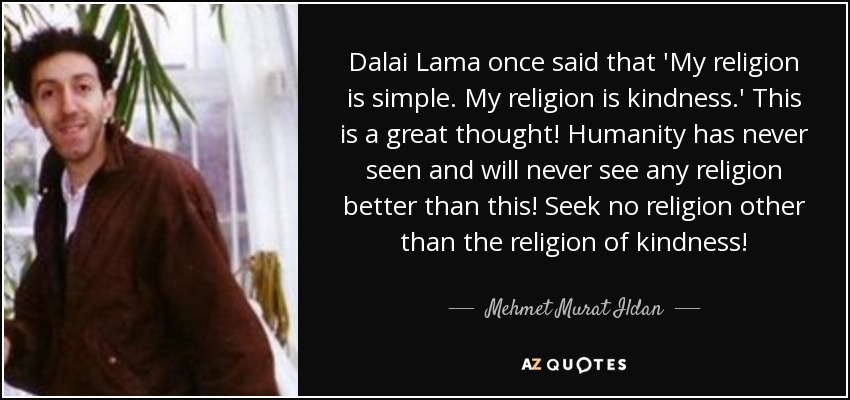
My mother pretended to be a victim — that she pulls us, that she gave birth to us, she is a saint. You live with it and do not understand that something is wrong. I studied well, went to circles myself, had good relations at school, at the university, at work. Nevertheless, my mother convinced me that I was not normal.
From the age of 13, it can be said that anger and rage increased. After the divorce, she began to have absolute power. She took me to every occasion. If it's a birthday, then she will beat me to such a state that I sobbed in front of my guests. For example, hot was delayed for 15 minutes. In principle, nothing terrible, but I was humiliated in the kitchen in front of a friend, there was some kind of verbal abuse. There was always a feeling that someone was hanging over you and ready to fuck you at any second: you are such a scoundrel, a disgrace, a shame, and so on.
When her father was around, she could mutter something, but she didn't thrash very much. Once I didn't have time to tidy up the apartment for her arrival. And I also had a puppy, he piled up somewhere behind the curtain, I didn’t see. Mother arrived early. She beat me and beat my dog. I somehow got used to my beatings, and the beatings of the dog terrified me so much that I just scooped up the puppy and went somewhere else, did not spend the night at home.
Once I didn't have time to tidy up the apartment for her arrival. And I also had a puppy, he piled up somewhere behind the curtain, I didn’t see. Mother arrived early. She beat me and beat my dog. I somehow got used to my beatings, and the beatings of the dog terrified me so much that I just scooped up the puppy and went somewhere else, did not spend the night at home.
I was always reproached for being like my paternal relatives, as if I could change that. My mother hated my grandmother, I could see her pain on her face when she noticed it.
When I was 18, I decided it was time to leave . And then my mother changed tactics. I still don't understand what came over her. When I went abroad, she started calling me every day, she was affectionate. I thought: now, it turns out, what kind of mother I have, worried, probably just strict, but she loves me very much.
Abusive parents get mad when you become free . Because a joyful person is relaxed and this is something negative, they make it so that there is a feeling of guilt. Ultimately, you get used to not being happy yourself or not showing your joy. I even started hiding when I started doing something, some kind of hobby, so that they would not tell me anything, because it was like some kind of hypnosis.
Ultimately, you get used to not being happy yourself or not showing your joy. I even started hiding when I started doing something, some kind of hobby, so that they would not tell me anything, because it was like some kind of hypnosis.
Mother controlled my leisure time - come and weed my garden. All children are like children, and you are freaks - you do not help. As soon as I began to have some success, she began to have anxiety. Of course, there are some good moments. Any evening when you can talk, even if you got a little shit. It seems like it's okay, we're kindred. It's like having a cake with a little potassium cyanide thrown into it.
I minimized communication for six months, then I went to therapy. When I was told not to communicate with my mother, I thought that a year is fine, but five years is a lot.
Parents are often traumatized children themselves, so psychotherapists advise both parties not to neglect professional help in resolving conflicts
Photo: Vera Salnitskaya
Share
During our penultimate meeting, she hit me on the head. At that moment, my mother was doing my hair and wanted to spray it with varnish. And I have an allergy, I said that my head would itch and I shouldn't do it. But she was not interested, and I insisted on my own. And then it hits me in the head with all my might. I didn’t even have anger, I realized that this marginalism goes beyond all boundaries and there is no more strength to forgive. I just said that's it, I went.
I don't know how she reacted to the fact that I stopped communicating with because I immediately blocked her completely. At first I did not want to break off her communication with my child, but nevertheless I decided that it would be better this way.
The psychotherapist diagnosed me with post-traumatic stress disorder. It's like war veterans. Very many people who grew up with toxic parents have this diagnosis. And I initially did not really believe her that my health and affairs would improve if I stopped communicating with my mother.
And I initially did not really believe her that my health and affairs would improve if I stopped communicating with my mother.
After I stopped communicating, even my hormones began to return to normal. A year went by and I got better. My nerves, my health began to improve. Gradually, a picture of what was happening to me began to take shape. I feel that some kind of poison is gradually coming out of me, in some doses, as if this dysfunction is exfoliating, my brain is being rewired.
Technically you can communicate again, but this toxic upbringing is at the level of reflexes. Mother, her voice, her look, some intonations. They can act depressingly on a person. I already perceive her as a stranger, she, in principle, has always been a stranger to me.
There are people whose parents died in an accident, nothing can be done about it.
If we meet by chance, I will take her like any other woman on street. No, I won’t come, I have nothing to talk about, I don’t want to say anything anymore. I still have the feeling of being released from prison after 20 years in prison. I look at healthy people, how they live. I begin to painfully learn step by step how normal people live.
I still have the feeling of being released from prison after 20 years in prison. I look at healthy people, how they live. I begin to painfully learn step by step how normal people live.
After separation, it happens that the image of the mother is stratified . Because there are both negative and positive aspects. She cooked something, called for dinner, bought some beautiful thing. There is still a craving for glimpses, but I realize that this has nothing to do with a real person. I have closed the need for parental love, because I understand that this connection will never happen again.
Too much care: what is overprotection
The current generation of teenagers is fundamentally different from their parents. Let's remember our school years: moms and dads worked, came late, their strength was barely enough to find out if the lessons were ready. And we led our own lives: we went out with friends, ran to clubs and dates, did homework without outside help and prepared for tests.
Much has changed now. Not every parent will let a child go to a circle alone, and this circle can be located on the other side of the city. Parents strive to give their child everything possible, and many teenagers have less and less free time. Many mothers do not work, devoting themselves entirely to the family.
And in this new reality, a new, previously little-known problem appeared - overprotection.
What is overprotection?
Family upbringing can be described using various characteristics: how many demands are placed on a child, how he is encouraged or punished, what he is allowed or forbidden to do. One of these characteristics is the level of care. It shows how much effort, attention, time the parents devote to the child. Well-known experts in the field of family relations E. Eidemiller and V. Justickis call such a parenting style that has developed in the family, in which children are given a lot of time, effort and attention, caring for children becomes the main thing in the life of parents. In reality, this manifests itself in the fact that parents help their son or daughter too much.
In reality, this manifests itself in the fact that parents help their son or daughter too much.
Of course, any child needs help and care from mom and dad, and not every hint or reminder is a manifestation of overprotection. Caring becomes superfluous when the parents do for the child what he may well learn to do for himself, or when, as a result of this help, the child feels weak and worthless. You can often find the conventional wisdom that the exclusive attention of parents is necessary for successful development. This is true if we are talking about babies up to a year old. After this age, the balance of independence and parental care is important for the child, and every year of his life this balance changes: independence should become more and more.
Two types of overprotection
In psychology, there are two types of overprotection. The first kind is called indulgent . In this case, parents do not just do a lot of work on the child, they do it in an exceptionally mild form, trying to limit the teenager as little as possible.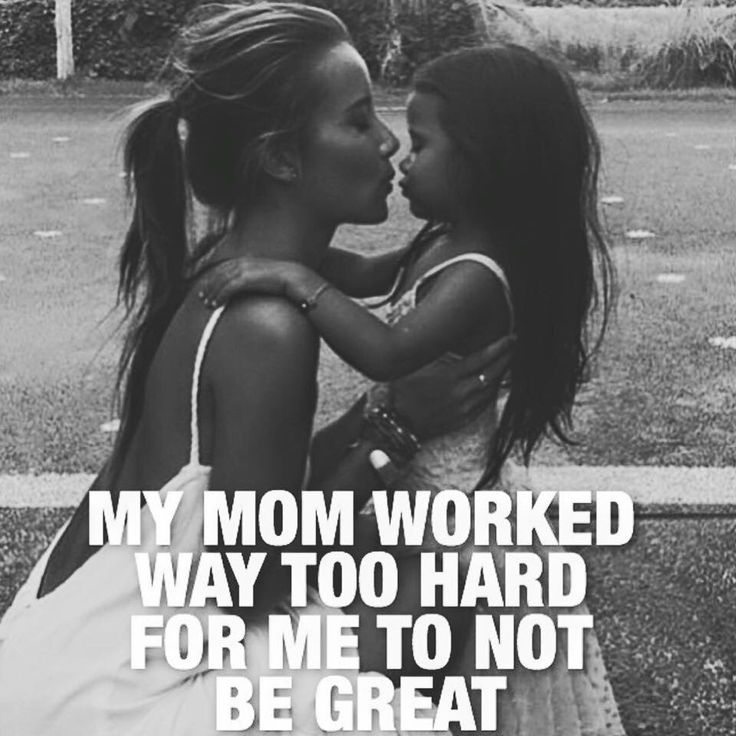 The needs of the child become the most important, mom and dad are ready to sacrifice their interests for the sake of him. In addition, as a rule, with condoning overprotection, almost nothing is forbidden to the child. In extreme versions of this type of overprotection, the mother of an eighth-grader can call her son's class teacher and ask him to check that his son has eaten, and the graduate's grandmother refuses to go to the hospital in order to be able to accompany her granddaughter to school.
The needs of the child become the most important, mom and dad are ready to sacrifice their interests for the sake of him. In addition, as a rule, with condoning overprotection, almost nothing is forbidden to the child. In extreme versions of this type of overprotection, the mother of an eighth-grader can call her son's class teacher and ask him to check that his son has eaten, and the graduate's grandmother refuses to go to the hospital in order to be able to accompany her granddaughter to school.
In the second type of overprotection - dominant - parents not only help the child too much, but also constantly control him. Mom or dad constantly command the teenager, demand or forbid something, as a rule, without being interested in the opinion of the child himself and not allowing him to take the initiative. Often this is accompanied by negative comments about the child. Here is a typical example. Mom and daughter of thirteen years old came to visit, the hostess asks the girl: “What salad do you want to put?”.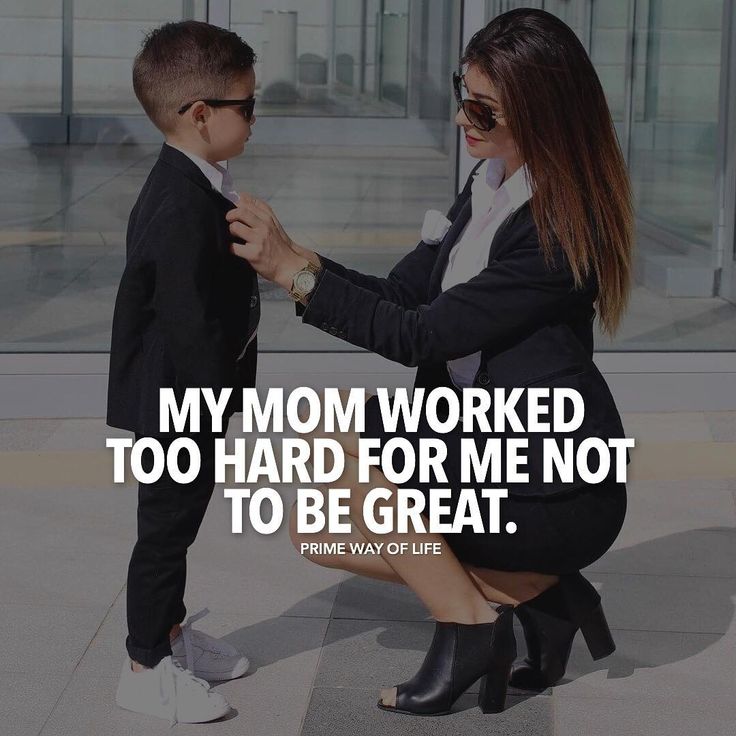 Mom intervenes before her daughter can say a word: “That one over there, without mayonnaise, and so she has already gained weight over the summer.”
Mom intervenes before her daughter can say a word: “That one over there, without mayonnaise, and so she has already gained weight over the summer.”
We emphasize that in the second form of overprotection, remarks are not necessarily made in a rude or disrespectful manner. Notations, explanations, persistent reminders are also its manifestations. Many parents will say: “I wouldn’t take care of him like that if he was independent and remembered everything himself.” However, independence and self-organization are formed gradually, they will not appear from nowhere at a certain age. When the children were small and learning to walk, at first they needed our help, we led them by the hand. Gradually they learned to walk on their own. The same thing happens with independence: it develops in stages, parents gradually complicate what they entrust to the child. But if you do everything for the child and help him too much, there is nowhere to take independence from. There is a kind of vicious circle: overprotection prevents the child from becoming independent and we continue to patronize him.
Why does overprotection occur?
When a child is still very young, parents do almost everything for him: feed, dress, play with him. Gradually, the baby's abilities grow: he learns to walk, dress himself, he can already play by himself. Every year, he needs less and less help from adults, and the task of parents is to adapt to a new level of development of the child, reducing the number of guardianships. But it is not always possible to rebuild - and then the parents continue to take care of the child as actively, help, suggest.
There may be various reasons for this. Some strive to give their children what they themselves did not receive: for example, the grandmother worked and hardly delved into the lives of her children, who grew up, became parents themselves and are now ready to spend round the clock next to their child. Events in the life of the family can also affect: if at some stage the parents were very worried about the child (say, he was seriously ill or had an accident with him), if the child was hard to get (say, was born after a long treatment or IVF). The personal characteristics of the parents also affect: the mother-boss, who is accustomed to lead her subordinates, often controls the children just as strictly.
The personal characteristics of the parents also affect: the mother-boss, who is accustomed to lead her subordinates, often controls the children just as strictly.
Finally, parents and grandparents want to feel needed and in demand. Overprotection often becomes an opportunity to feel needed for the family. This is especially common in cases where family care becomes the main area of implementation: a non-working mother or a retired grandmother is more likely to become overprotective. I'll give you an example. There were many conflicts in the family between the grandmother and the fourteen-year-old grandson: the boy insisted that he could do many things himself (and his parents were ready to give him such an opportunity), and his grandmother tried to help him. Finally, when, nevertheless, mom and dad decided to give their son more independence in some areas, the grandmother was indignant: “Well, if you don’t need me at all, you can send me to a nursing home.”
In some cases it can be helpful for parents to understand what leads to overprotection. This is the first step towards getting rid of it. But the class teacher needs to carefully consider whether it is worth raising this issue himself or whether it is better to invite the parent to talk with a psychologist. A conversation about the roots of overprotection can be quite painful for a parent.
This is the first step towards getting rid of it. But the class teacher needs to carefully consider whether it is worth raising this issue himself or whether it is better to invite the parent to talk with a psychologist. A conversation about the roots of overprotection can be quite painful for a parent.
How does overprotection interfere with a child?
Let's ask ourselves simple questions: why do you need to raise a child at all and what is the main goal of parenthood? You can answer them in different ways, but the main thing will be present in all answers: we want to prepare children for life so that they can be successful and happy in the society in which they will live. And for this, a teenager needs a sense of self-confidence, the ability to take the initiative, cope with difficulties and comply with the rules and norms existing in society.
An overprotective child finds it difficult to learn to be independent and self-sufficient because of so much care. In both types of overprotectiveness, adolescents may have self-esteem issues. In the indulgent version, self-esteem is usually very high, but extremely unstable, and children find it difficult to cope with failure. Overprotective mothers often notice that their children react very violently to the slightest failure. And no wonder: the child is used to being indulged in everything and he is always in the first place.
In the indulgent version, self-esteem is usually very high, but extremely unstable, and children find it difficult to cope with failure. Overprotective mothers often notice that their children react very violently to the slightest failure. And no wonder: the child is used to being indulged in everything and he is always in the first place.
In the second type, we often observe low self-esteem. The child grows up driven and insecure, because the mother always knows better, he is used to the fact that his opinion is not taken into account, and cannot insist on it.
Of course, all children are different, and they will react differently to overprotection: some teenagers will begin to actively protest when they reach adolescence, while others will finally take a passive position and rely on their elders for everything. But in any case, the consequences will be negative.
How do you know if you are overprotective?
To begin with, try to honestly answer the following questions for yourself:
— Can I say that raising a child has become for me the main thing in my life?
- Do I regularly forget about my interests in order to take care of a child?
— What part of my day is taken up by the time I spend with my child?
— Did I give up something very important to me for the sake of the child? (Naturally, we are not talking about one-time actions, but about sustainable trends).
If you readily agree to these questions, most likely, some elements of overprotection take place.
Observe how you communicate with your child.
— How do you help him?
- How do you comment on what the child is doing?
— Do you give him the opportunity to take the initiative?
— Is it possible to say that the peers of your child do for themselves what you do for him?
In a number of cases, it is difficult for us to be critical of our behavior. If you find it difficult to assess your own behavior or doubt the correctness of your conclusions, you can always seek advice from a family or adolescent psychologist.
What should overprotective parents do?
The obvious answer is to reduce the amount of care and assistance for the child. This is not easy to do, but it is possible, although it will require significant self-organization on the part of the parent.
Giving up overprotectiveness does not mean that you need to let the situation take its course and give the teenager complete freedom. He does not need this, and he is not ready for such freedom. It is important to turn overprotection into effective help for a teenager. To do this, first of all, teach your teenager to ask for help. No need to rush to the aid of the child as soon as he encounters difficulties. Wait for the teenager to think and try to cope with the difficulty that has arisen, and only then ask: “Do you need my help?” If the child agrees, then specify: “How exactly can I help you?”. If the child is at a loss with an answer, offer options to choose from: “Do you need to explain the problem or just sit next to you?”. If he refused, you don’t need to dissuade him that he can’t do it himself, it’s better to say: “Good. I'll be back in half an hour." And if after half an hour he still hasn’t done it, only here you can say: “I see that this is not an easy task. Let's try together."
He does not need this, and he is not ready for such freedom. It is important to turn overprotection into effective help for a teenager. To do this, first of all, teach your teenager to ask for help. No need to rush to the aid of the child as soon as he encounters difficulties. Wait for the teenager to think and try to cope with the difficulty that has arisen, and only then ask: “Do you need my help?” If the child agrees, then specify: “How exactly can I help you?”. If the child is at a loss with an answer, offer options to choose from: “Do you need to explain the problem or just sit next to you?”. If he refused, you don’t need to dissuade him that he can’t do it himself, it’s better to say: “Good. I'll be back in half an hour." And if after half an hour he still hasn’t done it, only here you can say: “I see that this is not an easy task. Let's try together."
Together with your teenager, consider in which area you could stop helping him. It is enough to choose one thing, albeit insignificant: brushing your teeth, biology lessons, getting ready for the pool. It is best if it is some business that he himself likes and in which you are really ready not to interfere. Emphasize that he is now doing this himself. Praise him periodically for doing it himself. After a while, it makes sense to expand this list and add something else there. If a teenager forgets about this, it should be his own problem: he didn’t go to the pool - he didn’t go swimming. Therefore, you need to choose exactly such cases that you are ready to completely give him at his mercy.
It is best if it is some business that he himself likes and in which you are really ready not to interfere. Emphasize that he is now doing this himself. Praise him periodically for doing it himself. After a while, it makes sense to expand this list and add something else there. If a teenager forgets about this, it should be his own problem: he didn’t go to the pool - he didn’t go swimming. Therefore, you need to choose exactly such cases that you are ready to completely give him at his mercy.
If you are prone to the first type of overprotectiveness, it is very important to expand your horizons and scope of interests. Think: what else could you do? You don't have to go to work at all. Perhaps you have some kind of hobby, you have long wanted to learn a foreign language or dance. Or maybe at the school where your teenager is studying, you will be happy to meet in the parent committee.
If a teenager comes to you for advice or a question about a difficult situation, take your time to answer. First ask the child what he thinks about this. Or offer several options to choose from and ask the child what seems optimal. At the same time, refrain from criticism or notations.
First ask the child what he thinks about this. Or offer several options to choose from and ask the child what seems optimal. At the same time, refrain from criticism or notations.
If you are prone to the second type of overprotectiveness, it is important to learn how to let your teenager take the initiative. Ask him for his opinion on certain issues, offer him a choice of several options, whether it's breakfast dishes or the color of sneakers. But if you give a child a choice, in no case should you dissuade him or show that he has chosen incorrectly. It is better not to give a choice at all than to ask: “What do you choose?” and then do it anyway.
If you observe overprotection on the part of one of the family members (for example, grandmother), try to find a new job for this person, thanks to which he will feel needed and in demand.
And most importantly, it is important to remember that giving up overprotection is a manifestation of love for a child. By reducing our care, stopping helping him when he does not need it, we give him the opportunity to believe in himself, to become more independent and mature.





